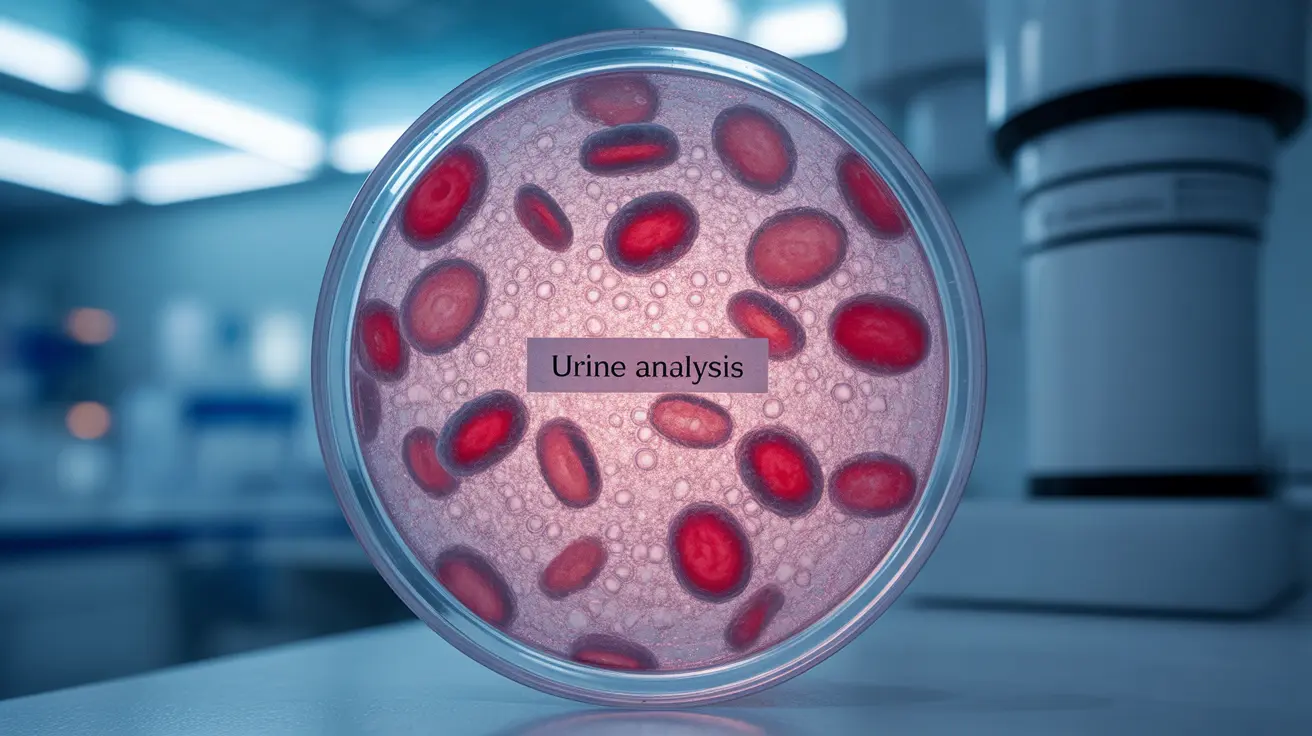Finding hemoglobin in your urine, also known as UA HGB positive or hemoglobinuria, can be concerning. This medical finding occurs when hemoglobin—the protein that carries oxygen in your blood—appears in your urine. Understanding what this means and its implications is crucial for proper diagnosis and treatment.
While the presence of hemoglobin in urine may indicate various underlying conditions, it's important to note that some cases are temporary and benign, while others may require medical attention. This comprehensive guide will help you understand the causes, symptoms, and treatment options for hemoglobinuria.
What Causes Hemoglobin in Urine?
Several factors can lead to the presence of hemoglobin in urine:
Medical Conditions
- Urinary tract infections (UTIs)
- Kidney stones or kidney disease
- Blood disorders like hemolytic anemia
- Certain autoimmune conditions
- Trauma to the urinary tract
- Bladder or kidney infections
Lifestyle and Environmental Factors
- Intense physical exercise
- Dehydration
- Exposure to certain toxins
- High-impact activities
- Certain medications
Signs and Symptoms Associated with UA HGB
The presence of hemoglobin in urine may be accompanied by various symptoms:
- Pink, red, or cola-colored urine
- Unusual fatigue
- Lower back pain
- Fever and chills (if infection is present)
- Frequent urination
- Discomfort during urination
Diagnosis and Testing
When hemoglobin is detected in urine, healthcare providers typically conduct several tests:
- Urinalysis (UA) with microscopic examination
- Complete blood count (CBC)
- Kidney function tests
- Imaging studies (if structural issues are suspected)
- Additional blood tests to check for underlying conditions
Treatment Approaches
Treatment for UA HGB positive results depends on the underlying cause:
Immediate Care
- Increasing fluid intake
- Resting if exercise-induced
- Stopping medications that may be causing the condition (under medical supervision)
- Treating any existing infections with antibiotics
Long-term Management
- Addressing underlying medical conditions
- Regular monitoring of kidney function
- Lifestyle modifications as needed
- Prevention strategies based on the cause
Prevention and Management
Several strategies can help prevent or manage hemoglobinuria:
- Staying well-hydrated
- Avoiding excessive physical strain
- Regular medical check-ups
- Following prescribed treatment plans
- Maintaining a healthy lifestyle
Frequently Asked Questions
What does it mean if hemoglobin is found in my urine (ua hgb positive)?
A UA HGB positive result indicates the presence of hemoglobin in your urine, which may suggest bleeding somewhere in the urinary tract or the breakdown of red blood cells. This finding requires further evaluation to determine the underlying cause.
What are the common causes of hemoglobin in urine and how are they diagnosed?
Common causes include urinary tract infections, kidney problems, blood disorders, and intense exercise. Diagnosis typically involves urinalysis, blood tests, and possibly imaging studies to identify the specific cause.
What symptoms should I watch for if I have hemoglobinuria or hemoglobin in my urine?
Key symptoms to watch for include discolored urine (pink, red, or brown), fatigue, back pain, frequent urination, and discomfort while urinating. If you experience these symptoms, consult your healthcare provider.
How is hemoglobin in urine treated depending on its underlying cause?
Treatment varies based on the cause and may include antibiotics for infections, medication adjustments, increased hydration, or specific treatments for underlying conditions. Your healthcare provider will develop a treatment plan based on the diagnosis.
Can strenuous exercise or medications cause hemoglobin to appear in urine?
Yes, intense physical exercise can cause temporary hemoglobinuria due to the breakdown of red blood cells. Certain medications can also lead to this condition. These cases are usually temporary and resolve with rest and proper hydration.




